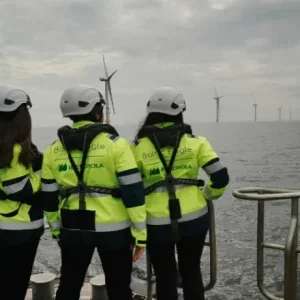Following the allocation in 2007 of research grants in the order of E25 million to the University of Kiel and the Leibniz Institute of Marine Sciences to investigate methods of CO2 sequestration on land and at sea, the first geological surveys are to be carried out in the state of Schleswig-Holstein in 2008.
RWE Dea has applied for permission from the State Department for Mining, Energy and Geology to explore three regions in Schleswig-Holstein for their suitability for CO2 storage. These regions are located in north Frisia, in east Holstein and offshore under the North Sea.
According to the company, preliminary investigations indicate that the north German region is a potential location for the storage of CO2. A prerequisite for such a storage facility was saltwater-bearing rock formations, such as the ones found below the north German lowland plain.
RWE Dea said that it has been operating high-volume porous natural gas storage facilities in Bavaria, Germany, using a technology similar to that proposed for the storage of CO2.
Georg Schoning, CEO of RWE Dea, said: The existence of deposits of natural gas that have been stored for millions of years demonstrates clearly that gases can be safely locked inside geological formations for long periods.






